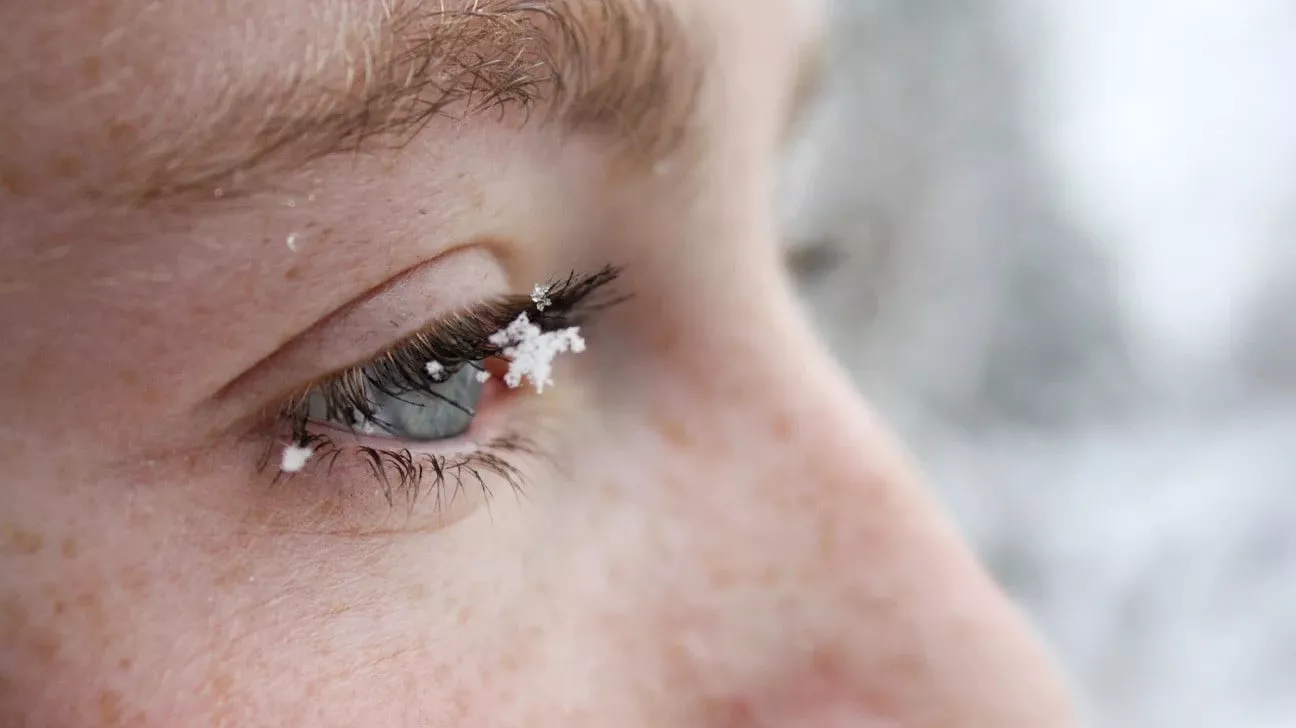Winter brings a whole host of unique challenges for your eye health. From the cold, dry air to the artificial heat we rely on indoors, our eyes can take quite a hit. Here’s a closer look at some common winter eye problems and how you can protect your vision during the colder months:
1. Dry Eyes
Cause:
The winter air is often colder and drier, both outdoors and inside with the use of heating systems. This can lead to a significant reduction in moisture levels in your eyes, resulting in dryness.
Effects:
Dry eyes can lead to a variety of symptoms, including discomfort, burning, redness, itching, and even inflammation. Without enough moisture, your eyes are also more susceptible to infections.
Remedies:
Apply Artificial Tears:
Over-the-counter lubricating drops can keep your eyes moist and help reduce irritation.
Use a Humidifier:
Adding moisture to the air indoors will help prevent your eyes from drying out.
Stay Hydrated
Drinking plenty of water will keep your eyes and body hydrated, providing much-needed moisture.
2. Increased Risk of Eye Infections and Allergic Reactions
Cause:
Winter dryness, coupled with frequent rubbing of the eyes (due to irritation), can increase the likelihood of infections like conjunctivitis (pink eye). In addition, indoor allergens like mold, dust, and pet dander tend to increase during colder months.
Effects:
When your eyes are dry and inflamed, they become more vulnerable to infection. Rubbing your eyes can also transfer harmful bacteria and viruses. Winter allergies can cause watery, red, and itchy eyes, while the dry, heated indoor air makes things worse.
Remedies:
Prevent Overheating:
Avoid overly dry indoor air by keeping your thermostat moderate and using a humidifier.
Ventilate Your Home:
Opening windows briefly can help circulate fresh air and reduce indoor dryness.
Consult an Ophthalmologist
If you develop symptoms of conjunctivitis or other infections, consult your eye care specialist immediately. Make sure to practice good hygiene to avoid spreading it.
3. Wind Exposure
Cause:
The harsh winds that come with winter can be especially drying and damaging to your eyes.
Effects:
Wind exposure can exacerbate dry eye symptoms, leading to redness, irritation, and even watering. If you're already struggling with dry eyes, wind can make matters worse by drying out your eyes even further.
Remedies:
Wear Wraparound Glasses
These glasses provide extra protection from drying winds and debris.
Use Hats and Scarves
Wearing a scarf or hat with a wide brim can help shield your eyes from the cold and wind, protecting them from irritation.
4. Eye Strain from Indoor Lighting and Digital Devices
Cause:
During the winter, we spend more time indoors under artificial lighting and often staring at digital screens for extended periods.
Effects:
Extended screen time and improper lighting can result in digital eye strain, causing eye fatigue, discomfort, and sometimes even headaches.
Remedies:
Limit Screen Time:
Try following the 20-20-20 rule:
Every 20 minutes, take a 20-second break and look at something 20 feet away.
Adjust Lighting:
Ensure your indoor space is well-lit, so you’re not straining your eyes to read or view screens.
5. Contact Lens Care
Cause:
The cold, dry air combined with indoor heating can increase the likelihood of discomfort and dryness for contact lens wearers. Additionally, the risk of corneal scratches is higher in winter due to prolonged contact lens use in such environments.
Effects:
Contact lens wear during the winter months can lead to blurred vision, light sensitivity, and that gritty feeling in your eyes.
Remedies:
Use Moisturizing Drops:
If you wear contact lenses, opt for lubricating drops that are designed to be safe for contact wearers.
Take Regular Breaks:
Reduce the amount of time you wear your contacts, especially during dry, windy days, to help minimize irritation.
Winter can be tough on your eyes, but by taking a few simple precautions, you can keep your vision healthy all season long. Be mindful of dryness, infections, and the extra strain your eyes can endure with cold, dry air and increased screen time. Your eyes will thank you for it!









COMMENTS
Comments are moderated and generally will be posted if they are on-topic and not abusive.
For more information, please see our Comments FAQ